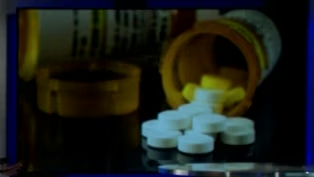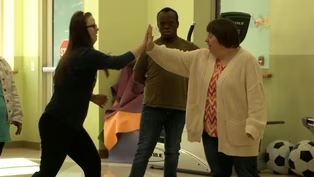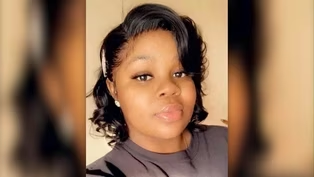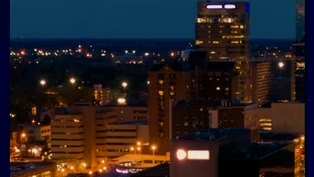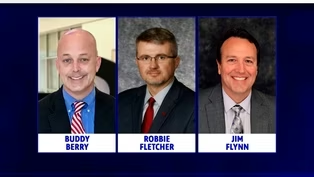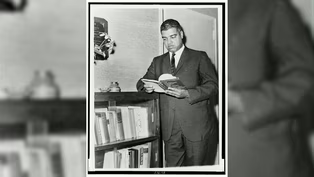
Severe Weather Show
Clip: Season 2 Episode 203 | 4m 53sVideo has Closed Captions
Weather and climate experts discuss the impact of Kentucky's changing climate.
Weather and climate experts discuss the impact of Kentucky's changing climate.
Problems playing video? | Closed Captioning Feedback
Problems playing video? | Closed Captioning Feedback
Kentucky Edition is a local public television program presented by KET

Severe Weather Show
Clip: Season 2 Episode 203 | 4m 53sVideo has Closed Captions
Weather and climate experts discuss the impact of Kentucky's changing climate.
Problems playing video? | Closed Captioning Feedback
How to Watch Kentucky Edition
Kentucky Edition is available to stream on pbs.org and the free PBS App, available on iPhone, Apple TV, Android TV, Android smartphones, Amazon Fire TV, Amazon Fire Tablet, Roku, Samsung Smart TV, and Vizio.
Providing Support for PBS.org
Learn Moreabout PBS online sponsorshipSpring begins next week.
Hooray.
Not only will we see more flowers and warmer weather, hopefully, but also more chances for severe weather.
Katy's Kristie Dutton recently sat down with a panel of weather and climate experts to discuss Kentucky's changing climate and impacts.
It may have in the future.
Kentucky's climate summary from Noah shows that Kentucky's average temperature is warmer than it used to be.
Now this is in 1900, so temperatures in Kentucky have risen by 0.6 degrees Fahrenheit since the beginning of the 20th century.
Kentucky's temperature hasn't risen as much as the US average increase of 1.8 degrees Fahrenheit.
Okay.
Now I want to go back to two.
Want a 28 0.6 degrees.
That doesn't sound like a lot.
Is that significant?
It really doesn't sound like a lot.
But when you factor in that, when you have warmer temperatures, the atmosphere can hold more moisture.
It has the potential to really help to develop stronger storms.
Yeah, that can be pretty significant across the area.
And then you also have to remember the city of Louisville itself as well.
If you look at the urban heat island effect, a drastic difference that you could see between downtown Louisville and other places, that you can end up with more of an impact within a major city compared to other locations.
And then also with that warmer weather, you have more of that moisture.
Water conditions were developing areas, even more and more pavement, more asphalt.
The potential for more flooding.
We were talking about that earlier, earlier.
Urban flooding can be incredibly dangerous.
And once again, we're getting back to that.
Turn around, don't drown.
So once again, preparation, being weather aware is certainly going to be key as we're heading forward and going into a pretty wet and potentially stormy season.
Yeah.
Okay, Shane.
0.6 degrees Fahrenheit.
That doesn't sound a lot.
What else is that going to affect tomorrow?
Just talking about flooding.
What else might we have?
Impacts?
Well, that affects storm seasons, too, and the shifting of them.
We've talked about Tornado Alley.
A lot of us have heard of that Dixie Alley, like during the winter season and then in the plains there, Tornado Alley would include Kansas, Oklahoma, Texas.
We often think of the intense tornadoes happening during the spring to early summer months.
There's been a slight northeastward shift in traditional tornado alley over the last decade or so.
Some of that contributed to the warming that we've seen during that time.
We just came out of a very warm winter for Kentucky as a whole, for both Louisville and Lexington.
February was a top five warm.
February for Paducah was the warmest.
February of all time.
When you warm things up as to what you just mentioned, you increase the lower atmosphere's capacity to hold more moisture, water vapor, thereby increasing the chances for heavy precipitation and then stormier conditions, especially when cold fronts sweep in from the north and west.
So we can attribute that to having slightly warmer temperatures.
Yes, especially nighttime temperatures.
The nighttime temperatures being warm when you're low temperatures, 56 degrees when it should be 20 to 30 degrees for a climatology.
It's a big problem to say of these storms that form out and get through Graves County and further west out in Missouri and then they start going east and it's nighttime and there's a lot of fuel.
Right now, temperatures and moisture.
We look at dew point, there's a lot more moisture in atmosphere.
And I just can't tell you the number of tornadoes I have after 10:00 at night.
I would guess in for the entire year, the tornado count is probably at least 15 to 20% between those cool months that he talked about.
And we get one or two of these darn cool causes, quasi linear convective system squall lines, these lines of storms that come through and they produce a lot of wind.
But on the leading edge of that, they spin up these little tornadoes on there and they can hit your house.
I worry most about tornadoes at night more than anything, because because people go to bed.
Right.
What do you want to do at night?
You're tired.
You want to go to bed.
Back to Bowling Green.
I could not tell you.
The number of people says, Oh, I just went to a Christmas party.
I've had enough to drink tonight.
I'm going to bed is whether people are full of baloney, you know?
And what am I supposed to do?
Wait, All night long for these storms?
I'm like, yes, be prepared.
Have a plan.
What are you gonna do if you're going from that party?
What do you do at church?
What are you going to do?
Driving from soccer practice?
Have a plan, stand.
You can learn more about the plan, Stan, when you watch severe weather are staying safe.
That airs tonight right after Kentucky tonight at nine Eastern.
Eight Central right here on KCET.
Video has Closed Captions
Clip: S2 Ep203 | 3m 20s | Study shows 42% of people know someone who died by overdose. (3m 20s)
Investing in Disability Supports
Video has Closed Captions
Clip: S2 Ep203 | 5m 26s | The state budget is still up for debate this legislative session. (5m 26s)
Justice for Breonna Taylor Act Reintroduced
Video has Closed Captions
Clip: S2 Ep203 | 3m 46s | McGarvey joined Paul in Louisville to re-introduce the Justice For Breonna Taylor Act. (3m 46s)
Video has Closed Captions
Clip: S2 Ep203 | 2m 8s | Potential policies to change Daylight Saving Time. (2m 8s)
Search for New Education Commissioner
Video has Closed Captions
Clip: S2 Ep203 | 52s | Finalists have been selected to potentially replace the former commissioner of education. (52s)
This Week in Kentucky History (03/11/2024)
Video has Closed Captions
Clip: S2 Ep203 | 2m 7s | A look back at this week in Kentucky's history. (2m 7s)
Providing Support for PBS.org
Learn Moreabout PBS online sponsorship
- News and Public Affairs

Top journalists deliver compelling original analysis of the hour's headlines.

- News and Public Affairs

FRONTLINE is investigative journalism that questions, explains and changes our world.












Support for PBS provided by:
Kentucky Edition is a local public television program presented by KET
